- Home
- Fay Weldon
Splitting
Splitting Read online
Splitting
A Novel
Fay Weldon
Contents
Part One
A House Divided
(1) Edwin’s Divorce Petition
Part Two
A House Restored
(1) Angelica First Brings Edwin Home
(2) How They Told Edwin’s Father
(3) The Wedding
(4) Lady Rice, One Year into Her Marriage
(5) Lady Rice, Three Years into Her Marriage
(6) Angelica, Five Years into the Marriage
(7) Angelica, Six Years into the Marriage
(8) More Troubles
(9) Angelica, Eight Years into the Marriage
(10) Trouble in the Group
(11) More
(12) Damage
(13) The Garden Party
(14) Fallout
(15) Dinner Party
(16) Friends
(17) Angelica Barred from Home
Part Three
A Perforated House
(1) Sir Edwin Begins Divorce Proceedings
(2) Lady Rice’s Petition
(3) The Velcro That is Marriage
(4) Lady Rice’s Sea of Sorrow
(5) Initial Transformations
(6) Office Business
(7) Angel Is Born
(8) Anthea in the Linen Room
(9) Jelly At Work
(10) Postcoital
(11) Alimony as Justice
(12) An Unbelievable Narrator
(13) The Perforated Personality
(14) Breaking Out
(15) Angel’s Outing
(16) The Wicked and the Good
(17) Jelly Takes Over
(18) The Relief of Tension
(19) Jelly Alone
(20) Edwin’s Offer
(21) Lady Rice on Her Alter Egos
(22) A Curse from the Past
(23) Being Right
(24) Angel Out on the Town
(25) A Gust of Chilly Wind
(26) A Sniff of Skin
(27) Official Business
Part Four
Going Home
(1) Angel Goes Home
(2) A Short Visit to Mrs. White
A Biography of Fay Weldon
Part One
A House Divided
(1)
Edwin’s Divorce Petition
SIR EDWIN RICE WAS DIVORCING Lady Angelica Rice. Sir Edwin alleged in his affidavit to the Court—a document which the lawyer Brian Moss was now dictating to his secretary Jelly White—that Lady Angelica had behaved intolerably. And would the Court therefore put the couple asunder.
Jelly White’s hand trembled as she wrote. It was a pale, pretty, competent hand. Brian Moss liked it.
Angelica Rice, the document claimed, had committed adultery on many occasions with one Lambert Plaidy. Lady Rice had been discovered in flagrante delicto by Sir Edwin, and, what was more, in the Rice family four-poster bed. The housekeeper, a Mrs. MacArthur, would bear witness to this. Such behavior, typical of much similar behavior on the part of Angelica Rice, was unreasonable and intolerable to Sir Edwin.
Jelly White swallowed. Her throat was smooth and soft. Brian Moss liked that as well, and he very much liked the way she dressed: usually a neat knee-length skirt, pale cashmere sweater, a single row of pearls. He could see she was old-fashioned but he liked that too. The pearls were sufficiently translucent and uneven to be real.
Yes, it was intolerable for Edwin Rice to live with Angelica Rice: his health, his happiness were at risk.
Jelly White licked her pink perfect understated lips with a very red basic tongue. Brian Moss resolved not to become involved with her. He had a perfectly good wife at home. Jelly White was an ordinarily pretty blonde girl, of the two-a-penny kind, and too competent a secretary to risk losing.
The Petitioner, Edwin Rice, claimed that his spouse had acted in various other ways unacceptable to him: that she had been abusive and violent, pinching him while he brushed his teeth and otherwise molesting him; he alleged that her kissing of the family dogs amounted to bestiality, and her embracing of female guests to lesbianism. He petitioned the Court to let him go free of her.
Brian Moss heard Jelly White take in a whistle of outrage between her perfect little teeth, but her face remained peaceful and her hand was steady again as it continued to race across the sheet. He went on dictating.
The Petitioner claimed that Lady Angelica made excessive sexual demands on him; that she refused to have children; that she had dirty habits; that she was drunken, and took drugs; that she failed to provide proper food for his guests, thus humiliating Sir Edwin. And that, all in all, her behavior has been intolerable and unreasonable, and he wanted a divorce. Now.
“Goodness me!” said Jelly White, looking up from her shorthand pad. “I’m not accustomed to divorce work, but to me this smacks of overkill.”
“How well you put it,” said Brian Moss. “But overkill is our stock-in-trade. Here at Catterwall & Moss we prefer to offer the Court offenses in all available categories of unreasonable matrimonial behavior. Offer the minimum, as many firms do to avoid unnecessary trauma to the couple involved, and all you do is risk the Court’s rejection of the petition. What pretty white fingers you have!” And his strong brown fingers—or so he saw them—slid over her pale, slim ones, and Jelly White let them stay. Brian Moss did not, in any case, interfere with her right hand, only with the left, which was not observably making him money.
Brian Moss was a short, stocky, good-looking, quick-moving man with a well-developed jaw and an impetuous nature.
“Lady Rice seems to have been a perfectly dreadful wife,” remarked Jelly, “if this document is to be believed.”
“The Court will certainly believe it,” said Brian Moss. “It’s true I had some trouble finding an example of physical assault. We had to make do with the bottom pinching.”
“But Sir Edwin was happy enough to allege it?” enquired Jelly.
“Knowing it was a lie?”
“In my experience,”, said Brian Moss, “a man very quickly comes to believe his own lies, especially in matters of divorce and if there is a new lady in his life.”
“And is there a new lady in his life?” asked Jelly White.
“That is an improper question,” said Brian Moss, “and confidential. But since in your new job you will have full access to all my relevant files, I suppose it hardly matters. Lady Anthea Box came along with Sir Edwin to our last meeting.”
Jelly White made a hiccoughing little murmur and excused herself rather rapidly. Brian Moss thought it must be for some intimate female reason it was best not to enquire into. Jelly White had been working for Catterwall & Moss for a week—first in the secretarial pool but now, at his request, solely for Brian Moss. She had come through the Acme Agency and her references were impeccable. It had already been mooted that she should stay on as a permanent employee. She was competent, alert and interested in her work. Jelly White returned after a minute or so from the powder-room, composed and co-operative, as ever. Whatever the trouble had been, she had dealt with it effectively and swiftly. He liked that.
“Bestiality stays on the books as a major matrimonial offense,” said Brian Moss, “though it’s rarely used. It was on Lady Anthea’s insistence that the kissing of the dogs is included in the petition.”
“Won’t Lady Rice just deny it?” asked Jelly White.
“Lady Rice has Barney Evans as her lawyer,” said Brian Moss, “so it doesn’t make much difference what she does or doesn’t do, he’ll bungle it. And once a thing is said, it stays in the mind, no matter who un-says it. Lady Anthea strikes me as a far shrewder person than her new boyfriend, if less agreeable.”
“I see,” said Jelly White, and then she ask
ed, “Does truth and justice come into it?” but Brian Moss just laughed and chucked her under her perfect chin and said, “I hope I’m not going to get accused of sexual harassment,” and Jelly White said, “I wasn’t cut out to be a feminist, don’t worry, Mr. Moss.”
“Call me Brian in here,” said Brian Moss, “but Mr. Moss everywhere else.”
“Very well, Brian,” said Jelly White.
Brian Moss invited Jelly White to join him in a glass of sherry. “It’s perfectly possible,” said Brian Moss, “that Lady Anthea has been on the scene longer than Sir Edwin cares to admit. He was in here almost a year ago asking me about the parameters of divorce, matrimonial offense, division of property and so forth. He hasn’t put a foot wrong. I don’t think the wife will get a penny. It was she who walked out on him, vacated the matrimonial home; he even managed to discover her in flagrante first. The wealthy know how to look after themselves.”
“That’s why they stay wealthy, I suppose,” put in Jelly White, with an attempt at lightness, but she was pale, very pale. “You mean the bastard just set her up?”
“In my experience,” said Brian Moss, “men prefer the next wife to be in place before they get rid of the last. But no doubt the present wife will pick up her life well enough where it left off. She may even be well out of it. To all accounts it was a most unsuitable match. Lady Angelica strikes me as a woman without depth or complexity. Just rather passive, and very stupid not to have noticed what was going on. I hope you can get this document in the post today?”
“Of course,” said Jelly White, but it was two days before she did, and even then she put the wrong postal code on the envelope, so it was four days before the document reached Barney Evans. Those four days gave Lady Rice time to present her own petition, thus giving herself some minor advantage in the game that is divorce. Brian Moss swore when he found out, and blamed the post. The Rice couple, he could see, would not be the kind to wait peaceably for a “no fault, no blame” arrangement. Fault there was, blame there was, and fault and blame they’d have. Well, all the more money for him.
Lady Angelica Rice lay naked in her soft bed at The Claremont, an hotel just a stone’s throw from Claridges, where she had taken up residence, and appeared to talk to herself, as these days she so often did.
“It is my belief that we are suffering from a perforated personality,” said Angelica. “We must expect some confusion while we sort ourselves out.”
“I feel perfectly whole and sensible,” said Jelly. “Nothing the matter with me. What do you mean by perforated?”
“I mean we haven’t quite split,” said Angelica, “but if there’s any more trauma, by God we will. We won’t know any more what the other ones are up to; we won’t have to act by consensus; we’ll just own the body in turns. Or take over unfairly when the others aren’t looking. That’s what happens when a personality splits. And, like as not, we’ll get ourselves into even worse trouble.”
“I have more of a right to this body, than any of you,” said Jelly.
“Most of the time I can’t hear you anyway.”
“They’re fucking disgusting clothes,” said a stranger.
“You see what I mean?” asked Angelica. “It’s happening already. There might even be others of us in here. Oh, Jesus! Lady Rice, where are you?”
“I’m so tired, so sad,” moaned Lady Rice. “I can’t really take any interest in any of you. I just want to be alone.”
“Jesus!” said Angelica again, and blocked them all off and took over. She ordered rosehip tea from Room Service, did her yoga exercises, took her Vitamin C and went to sleep.
This is the formal and official account, written by Jelly at a later date, when her narrative skills had been sufficiently honed, of how Angelica had come to be in such a pretty pass.
Chomsky argues that language is inherited, not learned: that all the languages of the world exist in the mind of the pre-verbal child; the skills of a particular language being triggered off by the environment that the child finds itself in. In the same way, Jelly believes, any number of possible personalities exist in the minds of all of us: normally only one is allowed to surface, but in some individuals, in some circumstances, a handful of others will become apparent. We may be conscious of these only as murmur of internalised conversation, of conflicting opinions, warring responses in the head: just sometimes their personalities are such there is simply no keeping them down.
Part Two
A House Restored
(1)
Angelica First Brings Edwin Home
“MUM,” SAID ANGELICA FROM a phone box, “I’ve met this man. I’m bringing him home.”
Home was a modest house in the English countryside, outside the village of Barley. Here, on this small estate, teachers, social workers and such like lived; people with good hearts and low incomes. As for the farmworkers, they’d been eased out altogether by falling wages and rising prices. Who wanted farmworkers anyway? Houses grew more profitably than ever did cereal crops.
“You’re too young,” said Angelica’s mother at once. But too young for what, she didn’t say. Edwin was twenty-one to Angelica’s seventeen.
“You don’t trust me,” said Angelica. “You never have. You treat me like a child.” She’d been saying that since she was twelve, when a film company had moved into the village to make Hardy’s Tess of the D’Urbervilles. Nothing had been the same after that.
“You are a child!” said Mrs. Lavender White. “For all the rings you have in your nose.” Angelica at that time had twelve in each ear as well as the two in each nostril, but Mrs. White had got used to those. It was the rings in the nose she worried about: they might result in disfigurement. And where else did her daughter have them? It didn’t bear thinking about. “If it interests you, I’ve met a man, too, just like you.”
“But Dad’s only been dead a year,” said Angelica, upset.
Widows are meant to fade away; they should keep a low profile for the sake of their kids. That way everyone knows who’s where.
“Your father wouldn’t mind,” said Mrs. White, pleasantly. “He always wanted me to be happy.” The man she was living with was married, the father of Angelica’s schoolfriend Mary. His name was Gerald Hatherley. He’d been on the PTA with Mr. White, now in his grave. The two men had got on well enough, Angelica had to concede, during Mr. White’s lifetime, before he had left his wife a widow and in need of looking after.
“I don’t believe this,” said Angelica. No one likes to be upstaged. Here the daughter was bringing home what she’d thought was the catch of the season, only to find the mother already sporting in the water with dolphins.
The public phone box was arguably the prettiest in the whole country. Special permission had been obtained by environmentalists to paint it green, avoiding the traditionalist’s scarlet, so that the box did not disturb an eye adjusted to the delights of its surroundings. For three successive years Barley had won a prize as the most charming village in the country—with its well-tended, cosily gardened stone cottages, all hollyhocks and buzzing bees in the summer, the white-painted, brown-beamed medieval houses which leaned into one another for support; its central copper-spired church: the village green, the ducking pond, the ancient market, and the coach park just beyond the village limits especially for the tourists. And even these latter did not disturb Barley’s serenity too much, for the Parish Council allowed only one souvenir shop, and made few amenities available for the tourists’ convenience, so news got round and the coach parties, on the whole, stayed away from so boring a place.
Edwin and Angelica, having warned Mrs. White, came on round to see her. They drove up in a red MG: two bright young things.
Edwin wore a tweed jacket and a knotted scarf. She wore leather. “That’s a nice car,” said Mrs. White.
“It’s a red MG,” said Edwin defensively. “A lot of chaps have them.”
The humble housing estate where Angelica’s mother lived with her lover was discreetly surrounded by t
rees, so its existence did not worry the Barleans, as they liked to call themselves. These days Barley proper is occupied by wealthy people who needed to travel to the city only a couple of times a week (if that) for Board Meetings. In the smaller, damper cottages, a few of the original villagers remained—old men who gave local color in the pub and would applaud the incomers’ dart matches in return for a glass of beer; their wives cleaned others’ houses, or staffed the few village shops.
Barley was a happy village: everyone agreed, and so of course an artists’ colony had come to flourish here, in buildings converted from their original use, since current generations had no need of them. Former schoolhouses, chapels, a dozen barns, the old railway station—the rail link had long since gone—now gave the space and style required by the creative spirit.
Writers, potters, weavers, sculptors, architects came to Barley in the hope of encouraging and supporting one another, and having someone to talk to: though what it came to in the end, so typically, was that spouses got betrayed and swapped, and the group eventually collapsed beneath a weight of bitter gossip, spite and envy, only to rise again, talent and hope renewed.
For this purpose, for this rebirth, a sacrifice is normally required: Angelica was to find herself the living sacrifice, but that was in the future. This was now.
“Most chaps who have little MGs aren’t as well-built as you,” Mrs. White remarked. “How do you fit into it?”
Edwin was six four and weighed 210 pounds. Angelica’s mother looked him up and down appreciatively. “Well, everyone has them anyway,” said Edwin vaguely. Angelica nudged Edwin and tried to explain that on the estate everyone had practical Ford Fiestas or got on the bus. Edwin looked puzzled and said he could remember Angelica very well driving a Lamborghini, unlicensed and under-age, what was she talking about? Angelica said that was different and Mrs. White said she could see they had a stormy relationship, and Edwin said on the contrary. Mrs. White said trust Angelica to bring home an argumentative man.
Edwin, by chance, for the young couple had met in London, lived single and unappreciated in Barley’s dilapidated manor house, Rice Court; he was a scion of Barley’s even greater stately home, a further two miles deeper into the Great Park, into the Green Forest, Cowarth Castle. Here Lord Cowarth, Edwin’s father, lived. Though perhaps it should not be said “by chance,” for how many people do not travel far and wide in search of adventure and distraction to discover that the one they set their hat at, the one who so occupies the erotic imagination, in fact comes from the same town, the next street, even the house next door or the apartment down below. Escape from one’s origins, it so often seems, is out of the question, barred by fate.

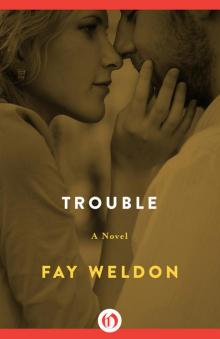 Trouble
Trouble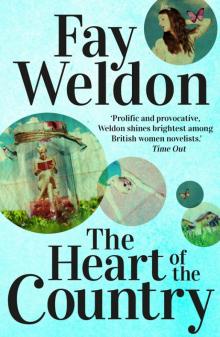 The Heart of the Country
The Heart of the Country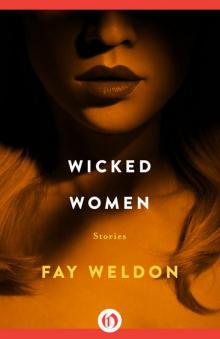 Wicked Women
Wicked Women Mischief
Mischief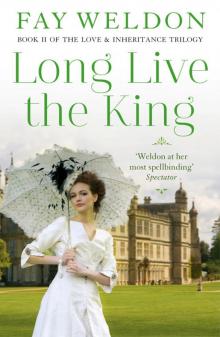 Long Live the King
Long Live the King Remember Me
Remember Me Worst Fears
Worst Fears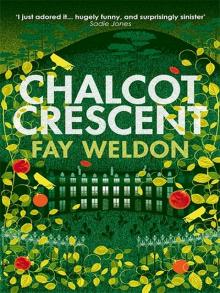 Chalcot Crescent
Chalcot Crescent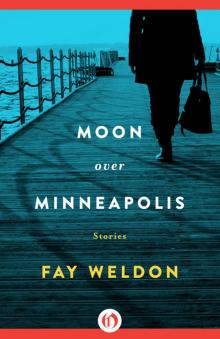 Moon Over Minneapolis
Moon Over Minneapolis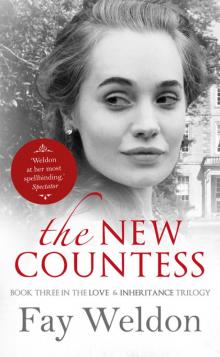 The New Countess
The New Countess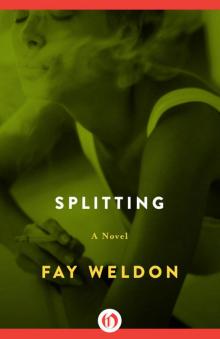 Splitting
Splitting After the Peace
After the Peace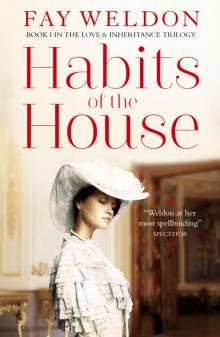 Habits of the House
Habits of the House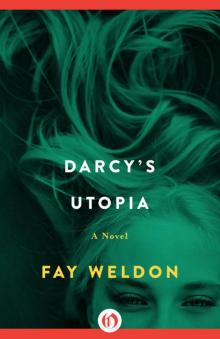 Darcy's Utopia
Darcy's Utopia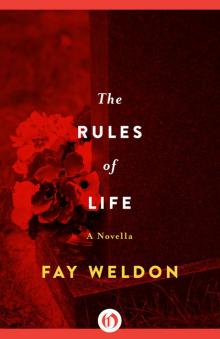 The Rules of Life
The Rules of Life Kehua!
Kehua! Before the War
Before the War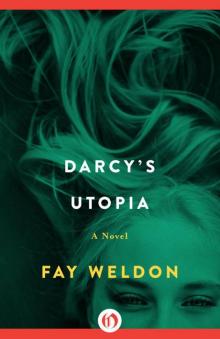 Darcy's Utopia: A Novel
Darcy's Utopia: A Novel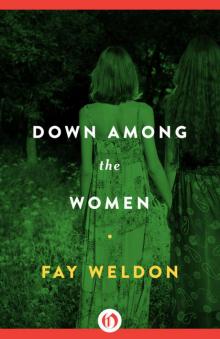 Down Among the Women
Down Among the Women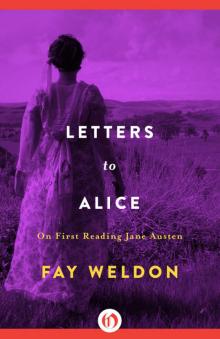 Letters to Alice
Letters to Alice 3 Great Historical Novels
3 Great Historical Novels Female Friends
Female Friends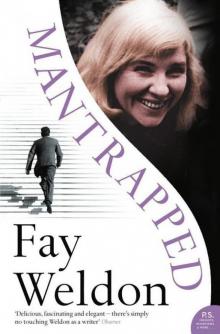 Mantrapped
Mantrapped The Bulgari Connection
The Bulgari Connection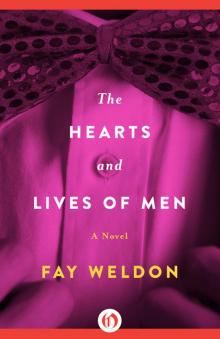 The Hearts and Lives of Men
The Hearts and Lives of Men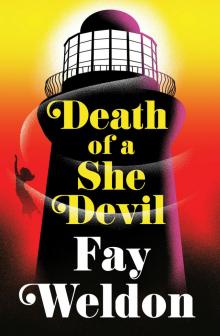 Death of a She Devil
Death of a She Devil